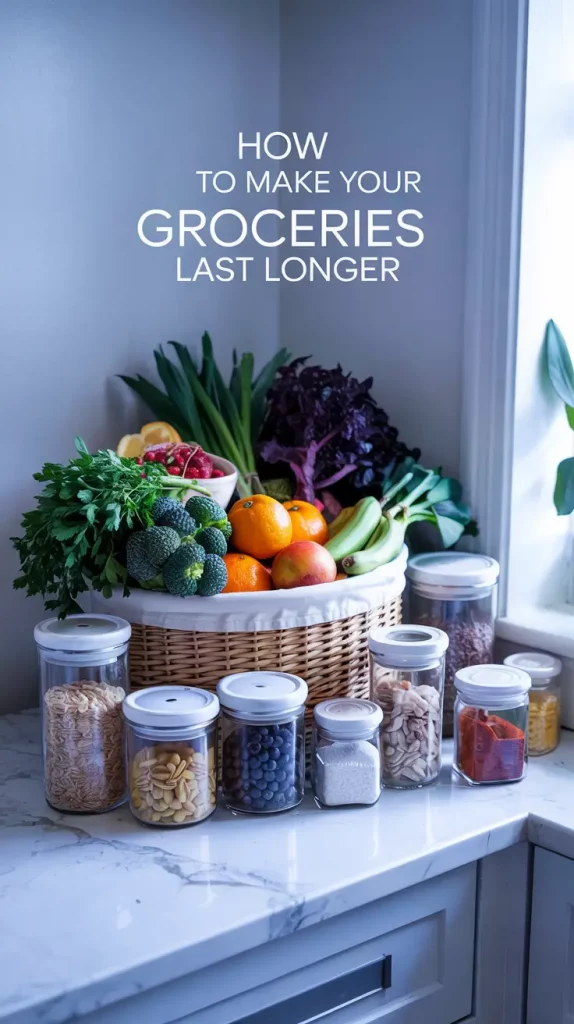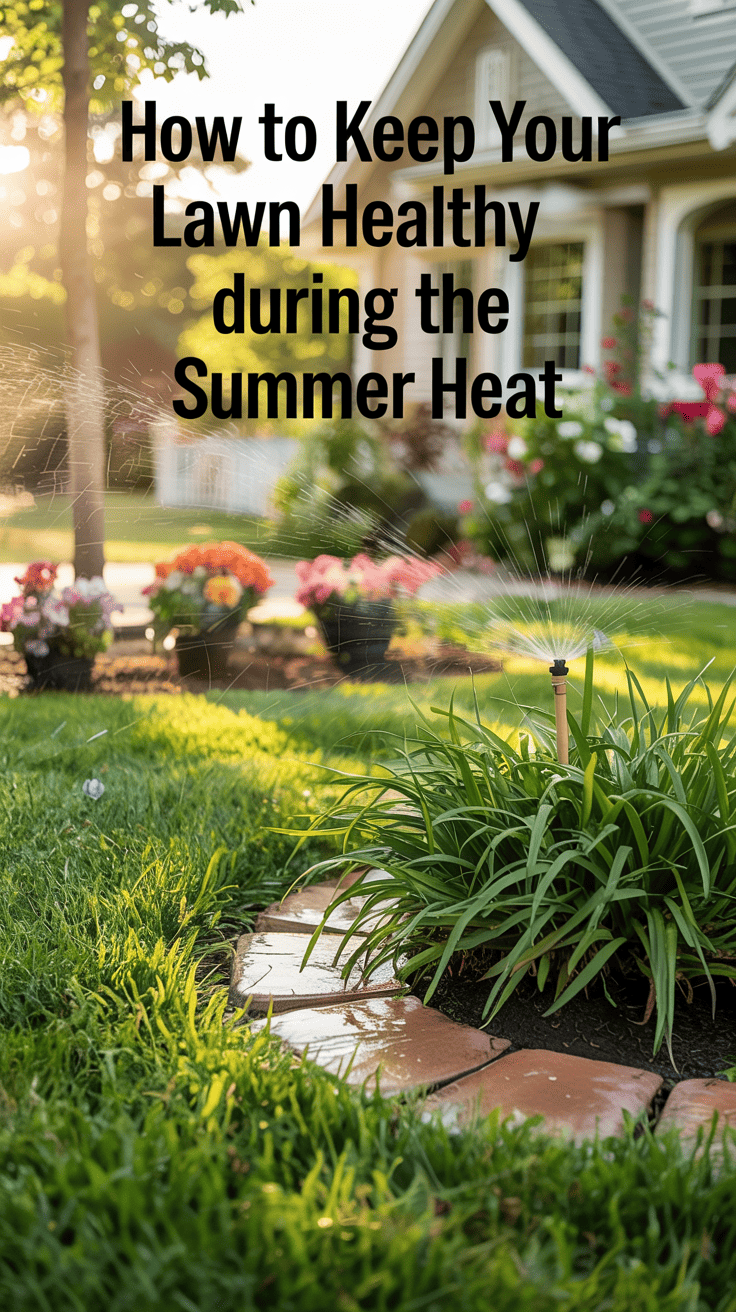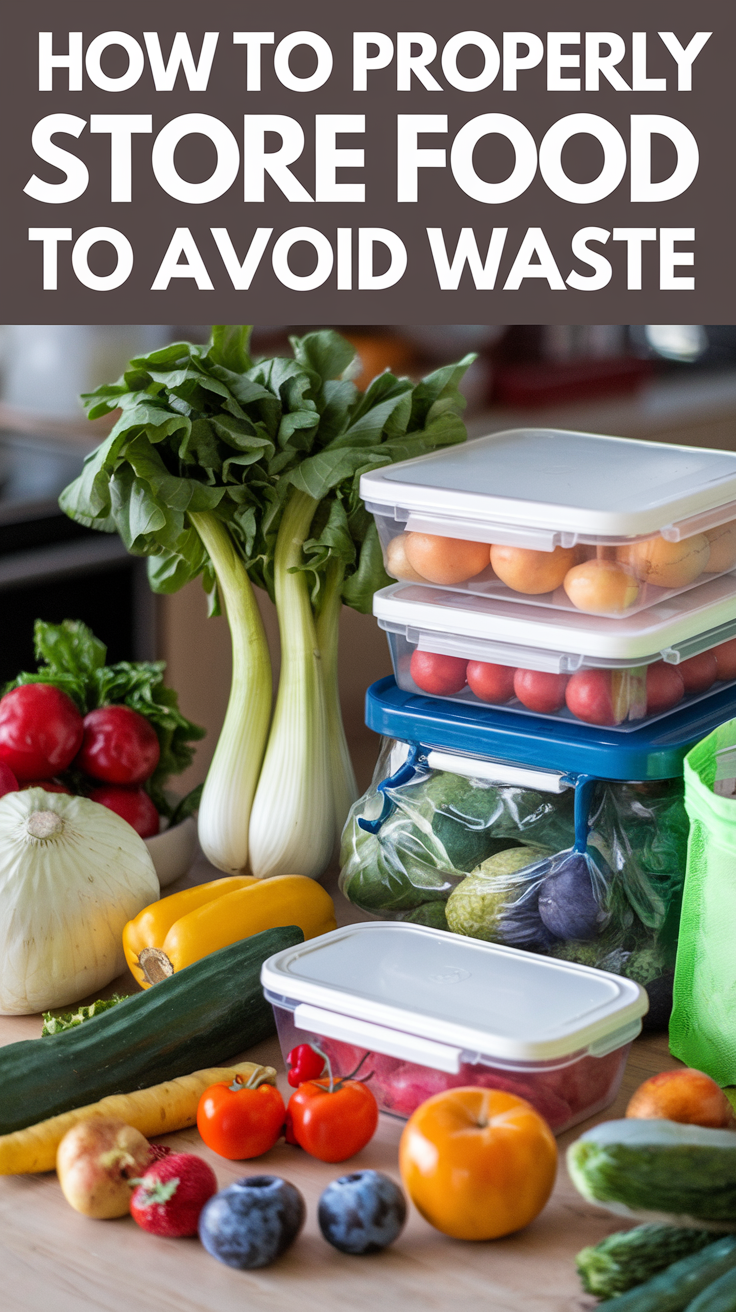How to Make Your Groceries Last Longer in 2025: Smart Storage Tips That Work
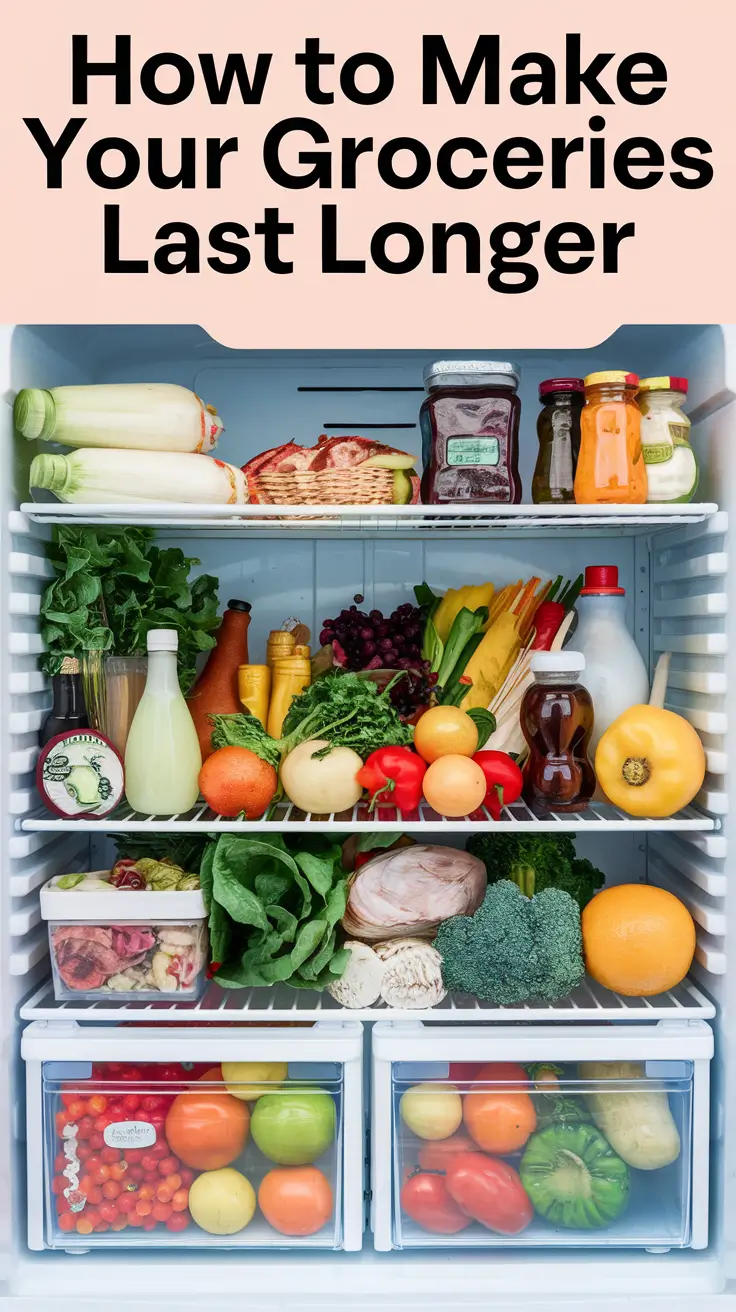
Did you know that the average American family throws away $1,500 worth of food every year? That’s right. Perfectly good groceries end up in the trash simply because they weren’t stored correctly. In 2025, with inflation and food prices on the rise, wasting food isn’t just frustrating—it’s expensive.
The good news? You can prevent most of this waste with just a few simple changes in how you store your groceries. From understanding fridge zones to using modern storage hacks, this guide will help you keep your food fresher, longer.
In this article, you’ll learn:
- How to store popular foods like produce, bread, and dairy
- Which containers and tools actually work
- What food scientists and nutritionists recommend
Who will benefit from this guide?
- Families looking to save money on groceries
- Meal-preppers trying to avoid spoilage
- Health-conscious eaters who want the freshest ingredients
Let’s get started.
Why Do Groceries Go Bad So Fast?
Food doesn’t go bad on its own—it needs a reason. The usual culprits? Temperature fluctuations, excess moisture, exposure to light, and poor packaging.
- Temperature: Most fridges have uneven cooling zones. One shelf might be perfect for dairy, while another could freeze your lettuce.
- Moisture: High humidity promotes mold and soft rot, especially in greens.
- Air exposure: Oxygen speeds up the breakdown of fats and accelerates spoilage.
- Light: Especially for fruits and oils, light breaks down nutrients and flavor.
Which Foods Are Most Fragile?
You might be surprised to know that:
- Leafy greens can wilt in 2 days if stored incorrectly.
- Strawberries mold within 48 hours when wet.
- Bread becomes moldy faster in plastic than in paper.
Quick poll: How many times have you tossed slimy spinach this month?
The Basics of Smart Food Storage
Modern fridges are divided into temperature “zones.”
- Top shelves: Consistent temps. Great for leftovers, drinks.
- Middle shelves: Ideal for dairy (milk, cheese, yogurt).
- Bottom drawers: Designed for produce, with separate humidity settings.
- Fridge doors: Warmest area. Best for condiments, not milk or eggs.
Don’t Overload Your Fridge
Air circulation is critical. Overstuffing blocks vents and causes uneven cooling.
Pro Tip: Keep 20% of your fridge space empty to allow proper airflow.
Understand Humidity Settings
Produce drawers often have sliders:
- High humidity: For leafy greens (spinach, herbs).
- Low humidity: For fruits that rot quickly (apples, avocados).
How to Store the Most Common Grocery Items
Vegetables & Greens
- Wrap herbs in damp paper towels and store in a glass jar with a loose lid.
- Leafy greens should be washed, dried, and kept in breathable containers.
- Carrots and celery last longer when submerged in water.
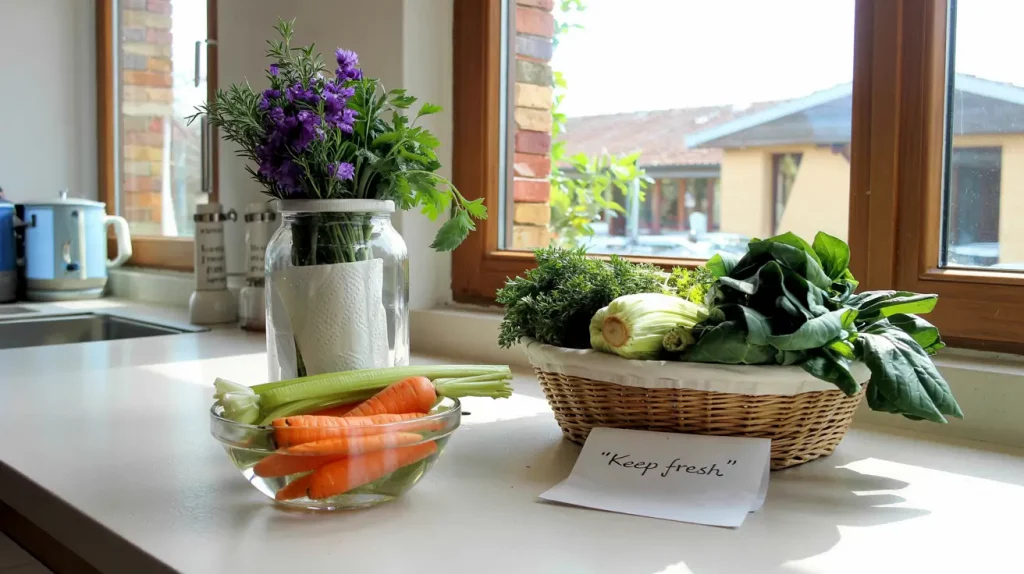
Fruits
- Keep bananas separate: They release ethylene gas that ripens nearby fruit.
- Store berries unwashed until ready to eat. Moisture speeds decay.
- Apples and citrus are best in the crisper drawer on low humidity.
Bread & Baked Goods
- Counter storage for up to 2 days in a paper bag.
- Freezer for long-term storage (slice first!).
- Avoid plastic bags unless freezing.
Dairy
- Milk and yogurt should be placed on middle shelves, not the door.
- Hard cheeses keep longer when wrapped in wax or parchment paper.
- Eggs stay freshest in their original carton on a middle shelf.
Modern Tools & Storage Hacks in 2025
- Vacuum-sealed boxes: Remove air to extend shelf life.
- Adjustable humidity bins: Great for produce.
- Silicone stretch lids: Reusable, airtight, and better than plastic wrap.
Food Freshness Apps
Apps now track your fridge inventory and expiration dates. Popular ones:
- Fridgely
- NoWaste
- Yummly (meal planning + storage tips)
How often do you forget what’s in the back of your fridge? These apps solve that.
Science-Backed Innovations
Recent studies show that:
- Blue light filters in some fridges slow down bacterial growth.
- Activated charcoal pads can absorb ethylene and odors.
- Smart labels change color when food goes bad.
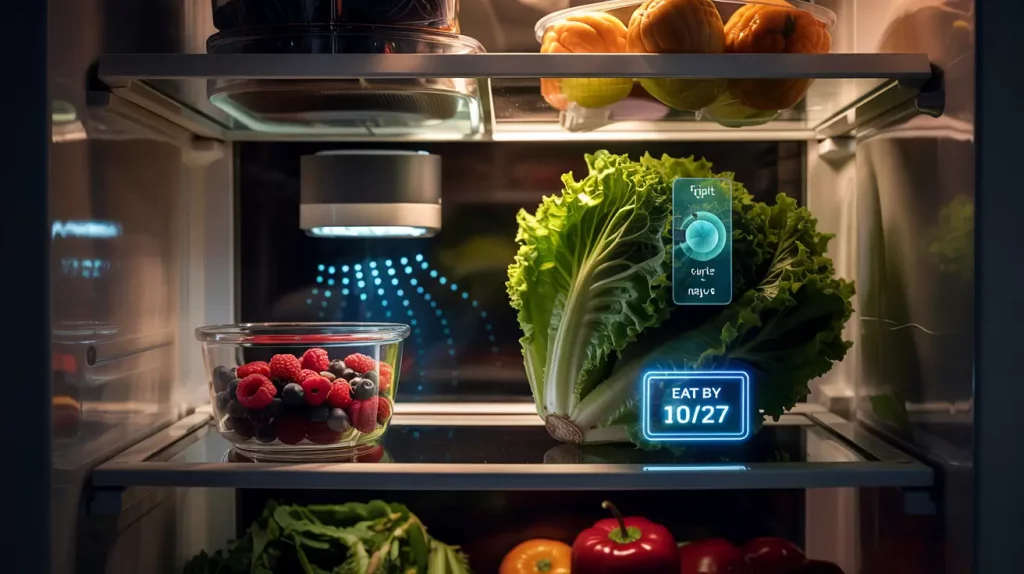
What You Can Do Today to Waste Less Food
5 Actionable Steps
- Label and date everything you store.
- Adopt “first in, first out” when using groceries.
- Keep a weekly inventory checklist.
- Clean your fridge every 10 days.
- Meal prep with perishability in mind (eat fragile items first).
📋 Downloadable List: Top 20 groceries + best storage method (PDF or print).
Fresh Storage Trends in Spring/Summer 2025
This season’s freshest storage trends blend sustainability, smart tech, and expert advice for maximum food longevity.
Eco-Friendly, Tech-Forward Options
- Compostable containers are replacing plastic.
- Fridges with built-in AI suggest storage zones for each item.
- Stackable modular bins help organize and optimize airflow.
Expert Tips from Nutritionists
- “Don’t rinse produce unless you’ll eat it within 24 hours.”
- “Use glass jars for leftover soups – they keep flavor better.”
- “Buy smaller quantities more often if you live alone.”
📊 Infographic: Storage best practices by food type.
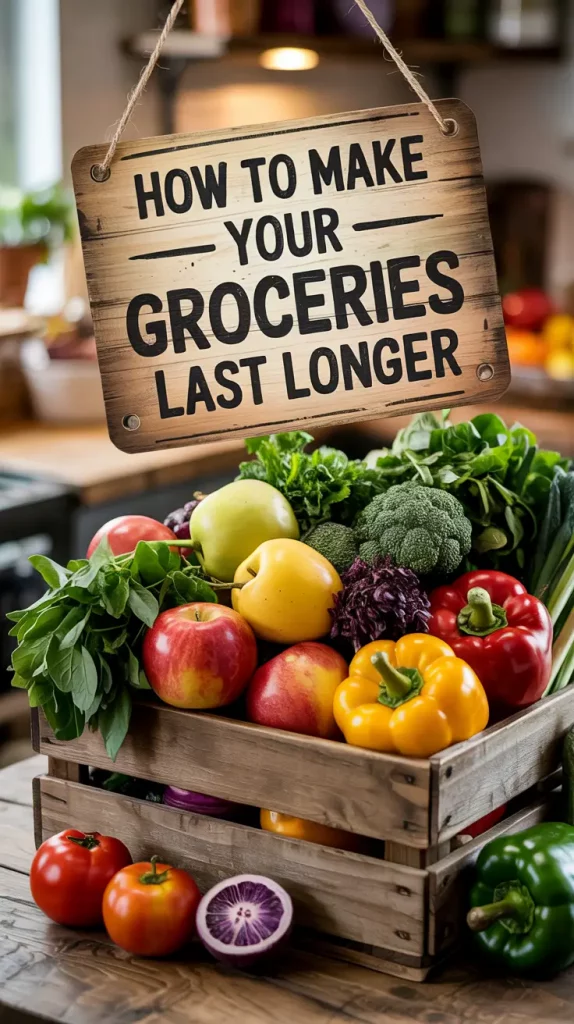
Conclusion: Save Money, Eat Better, Waste Less
Let’s recap the essentials:
- Temperature and humidity matter more than you think
- Proper containers = longer freshness
- Awareness + consistency = less waste and more savings
You now have the tools to change your grocery game.
So, what will you try first?
Have your own food-saving hack? Share it in the comments below!
🔗 Share this article with friends on Facebook, X, or Telegram and help others stop wasting food too!

